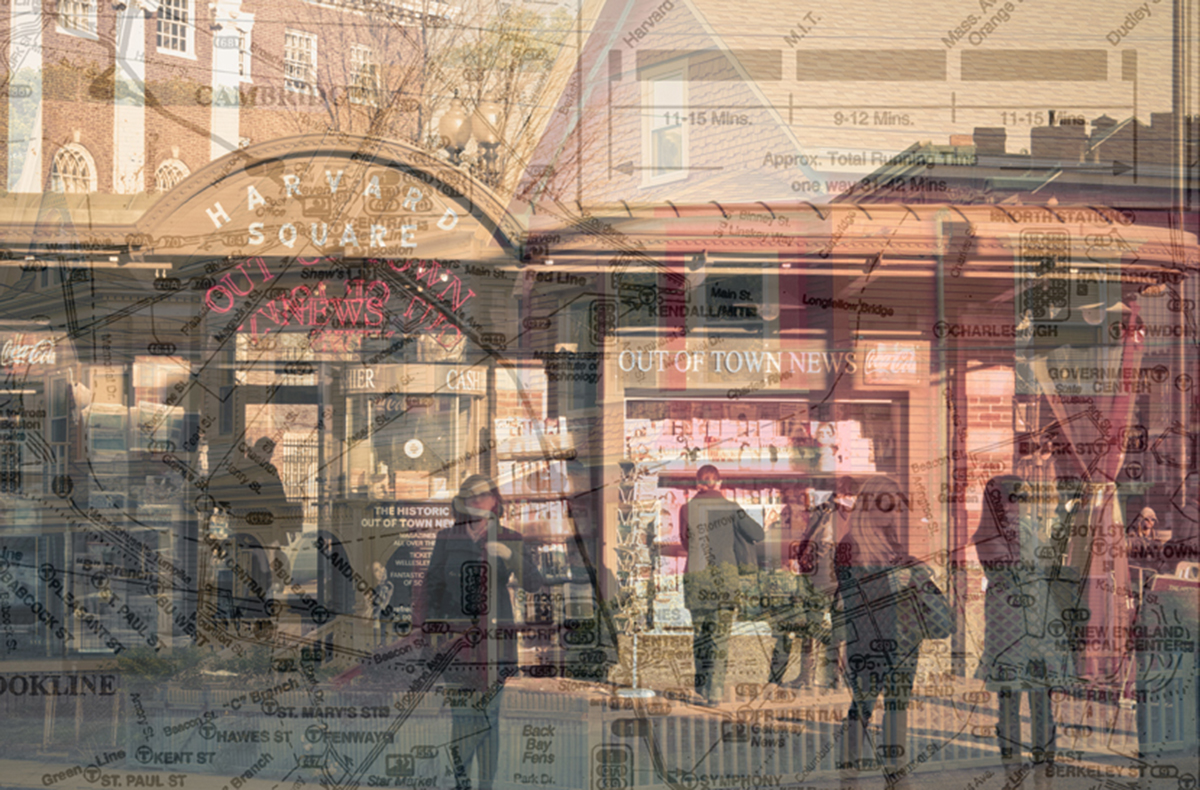An Ode to the MBTA
A lot has been said about the MBTA—much of it negative, some of it more heartfelt and sincere—but perhaps nothing has been written quite as eloquently about the state’s transit system as the musings penned by Boston-bred poet Liam Day.
For nearly four years, Day dedicated his time to riding on more than 70 bus routes—there are 178 statewide—that pass through the city and extend into the Greater Boston area, including Somerville and Cambridge. After spending hours sitting on the blue seats that line the insides of the T’s individual buses, staring out the windows at the bypassing landscapes, Day compiled his thoughts on paper, and turned them into a series of poems for his new book, “Afforded Permanence.”
“I started to think about the different aspects of the city I was interested in writing about, and as I started to think about those things I would identify on specific routes what would go with those themes. A lot of [the poems] are about neighborhood change, even from a very local level,” Day said of his approach to which routes he selected, and the subject matter he wanted to capture in his vividly descriptive works. “Sometimes I picked routes based on just how curious I was about that route, and said, ‘let’s see where this goes.’”
Setting aside the T’s aging infrastructure and financial woes, Day used the buses as a way to connect to the communities and people they service, rather than making the vehicles a central character in his writing.
The idea to put together the series of poems stemmed from a trip he took in 2010 on the 77 bus that runs along Massachusetts Avenue. After staring out at a record shop as his bus traveled its route, Day found it curious that such a shop still existed. After jotting down some thoughts about the experience, Day, who holds a day job as a partnership director with two healthcare organizations, ran his writing by his wife.
“On the back of the book I was carrying, I wrote a poem called ‘The Last Record Store.’ My wife—she is my first editor of everything I write—she read the poem, she liked it, but was also like, ‘you know, you could do this for a lot of different routes,’ and that’s where the idea came from,” said Day.
From there the journey began, and took Day into cities and towns he rarely visits, and back to neighborhoods, specifically West Roxbury, where he grew up.
An Uphams Corner resident, Day also used the project to explore the space immediately around him, and digest the diversity in his own backyard. He rode the 41 and 45 through Dorchester and along Blue Hill Avenue, he hopped a vehicle, the 439, from Lynn to Nahant—he’d never been there before—and he sought out the 89, which runs from Sullivan Square up Broadway in Somerville, because he wanted to check out the changes in Winter Hill.
He sat silently, taking in the scenery as he rode the 28 through parts of Mattapan, which led to the creation of his favorite poem in the book of 40.
“It just came fairly quickly and easily,” he said. “It’s the poem in which I did the best job of translating the themes I was pursuing about change and the nature of change into art rather than sociology, and crammed it into poem.”
Day’s book is now available for pre-sale, capping off his years-long experience of absorbing the city’s offerings from a vantage point most daily commuters might typically ignore. He plans on doing several speaking engagements and readings during the winter months, when his poetry officially hits store shelves in December.
Here’s a snippet from Day’s experience riding the number 1 bus from Harvard Square to Dudley Station, called “Voyagers to the West”:
…When winter settles in, storm follows storm,
snow piles up. City and transit authorities fight
over whose job it is to keep the stops clear,
so the bus stops in the street. Two young mothers
push strollers through the slush, traffic
stuck, snarled for blocks. Riders press against
each other, smell of fried food and wet wool.



